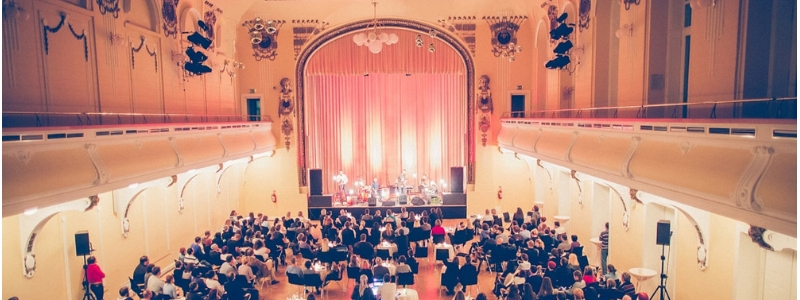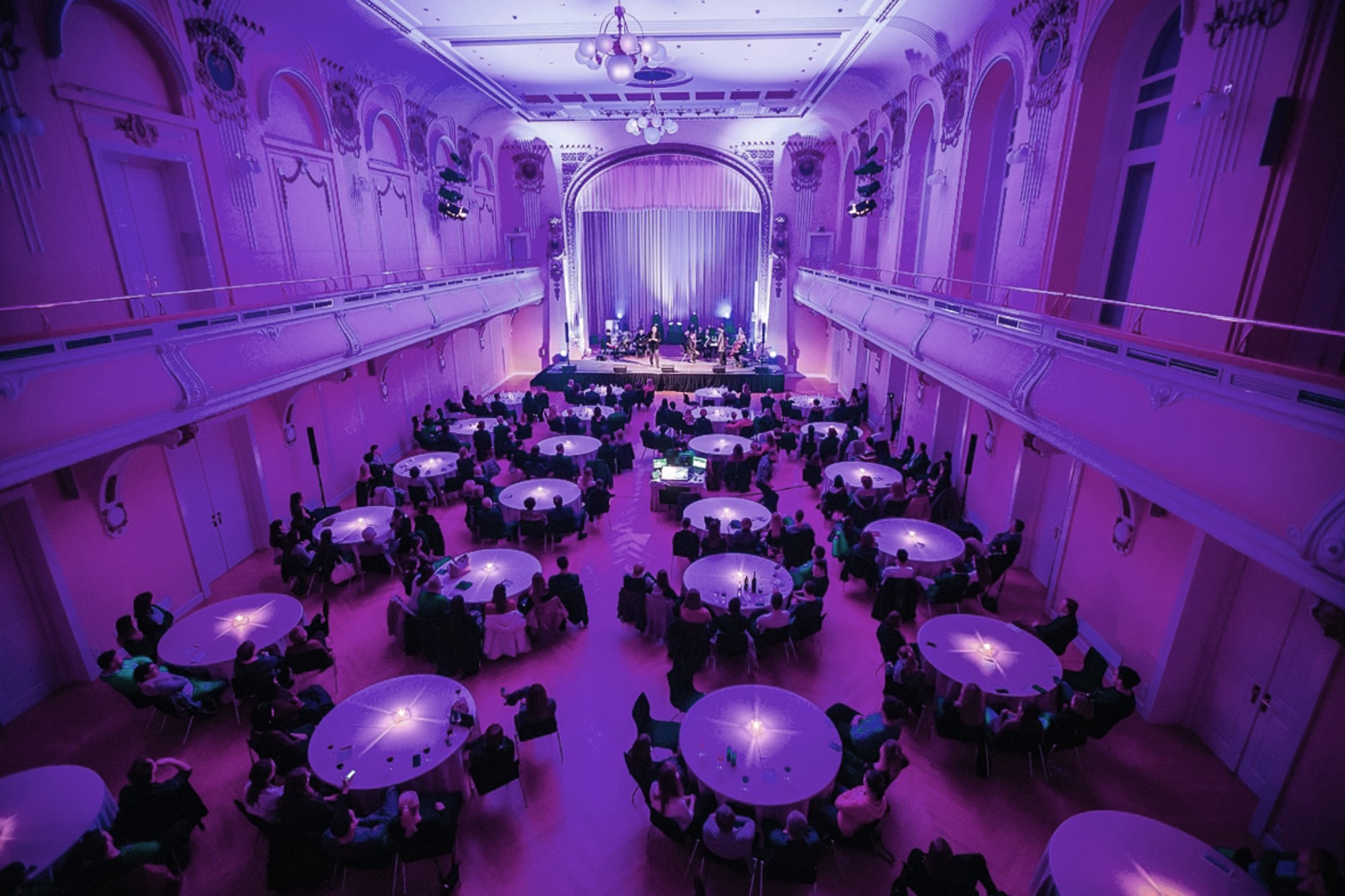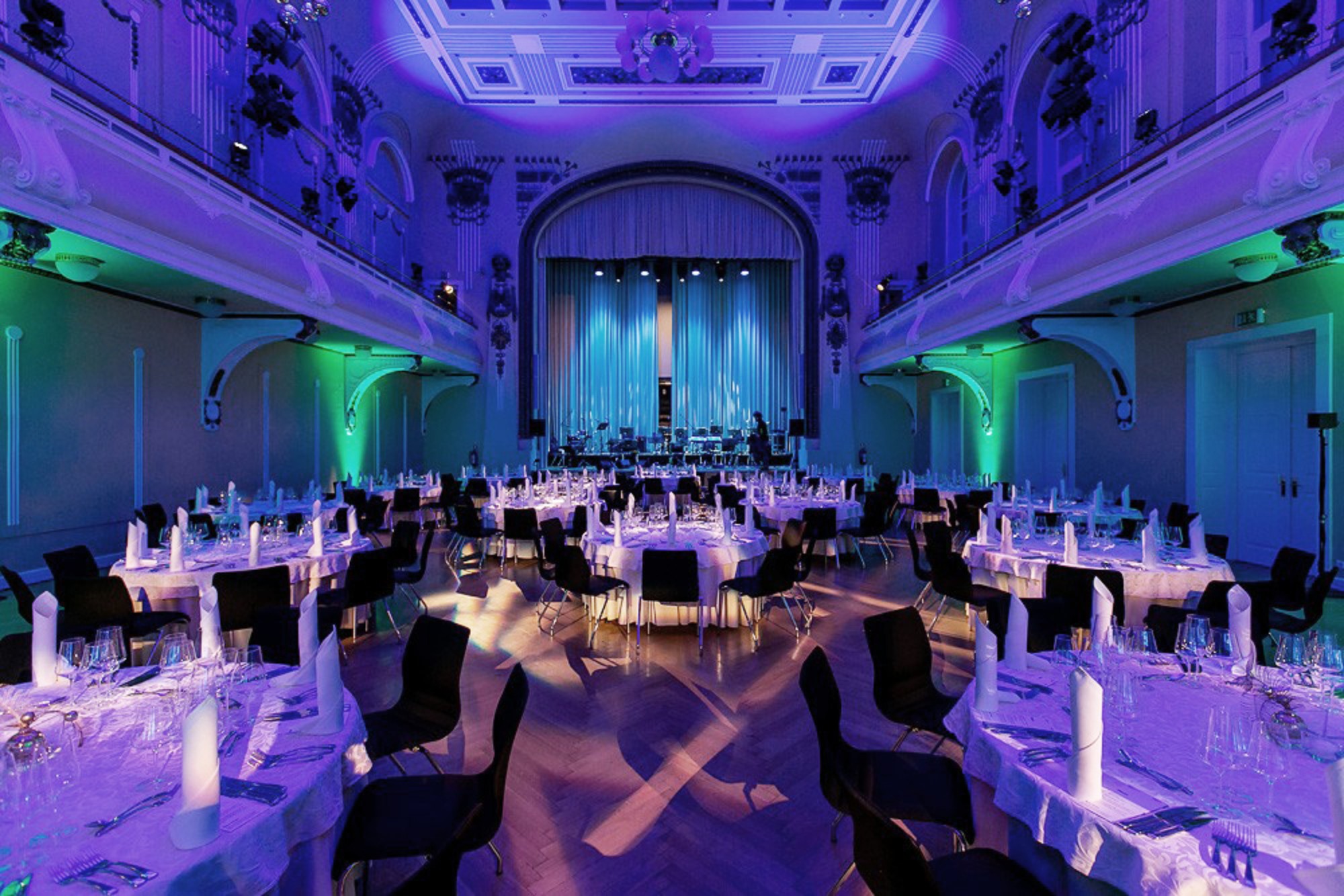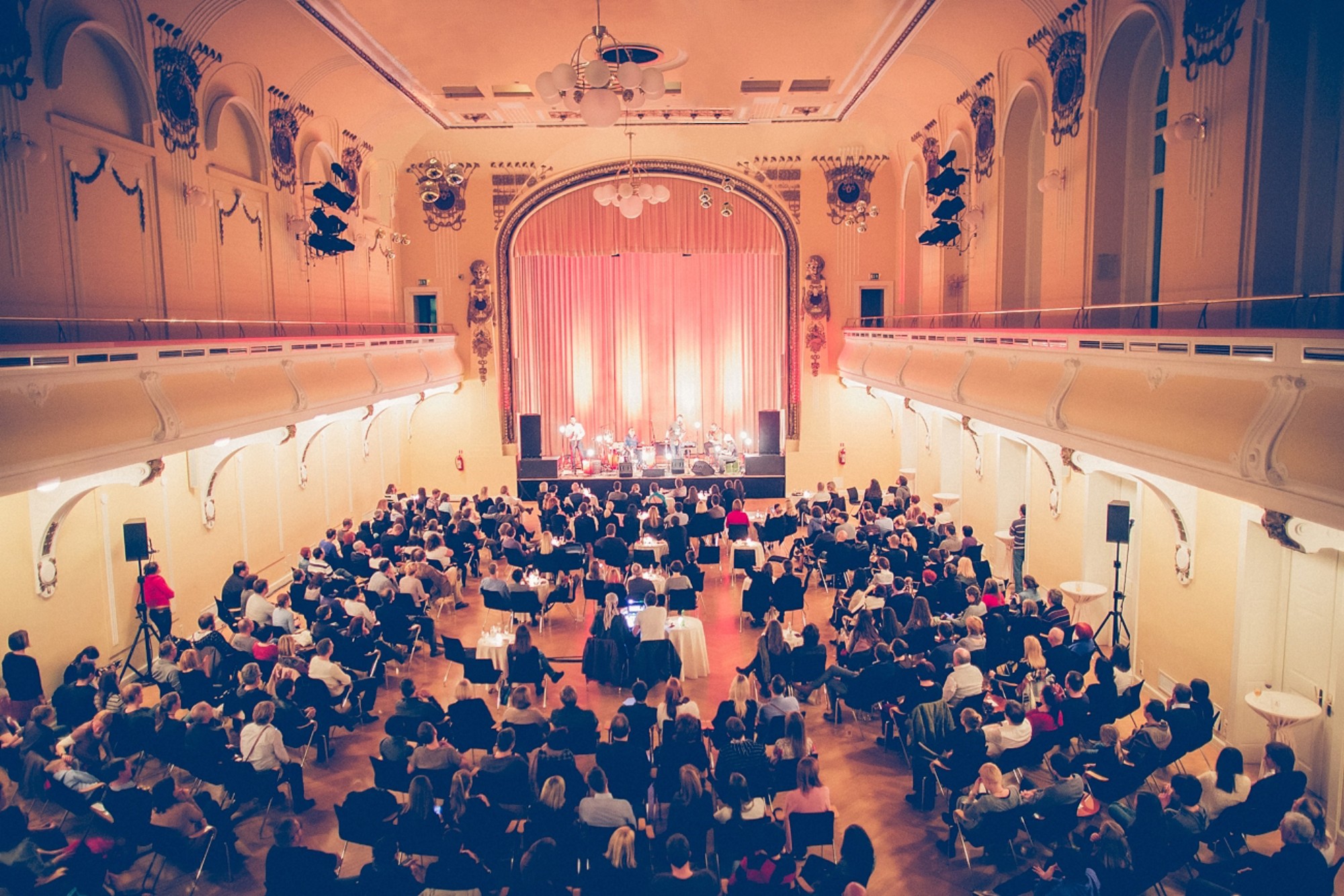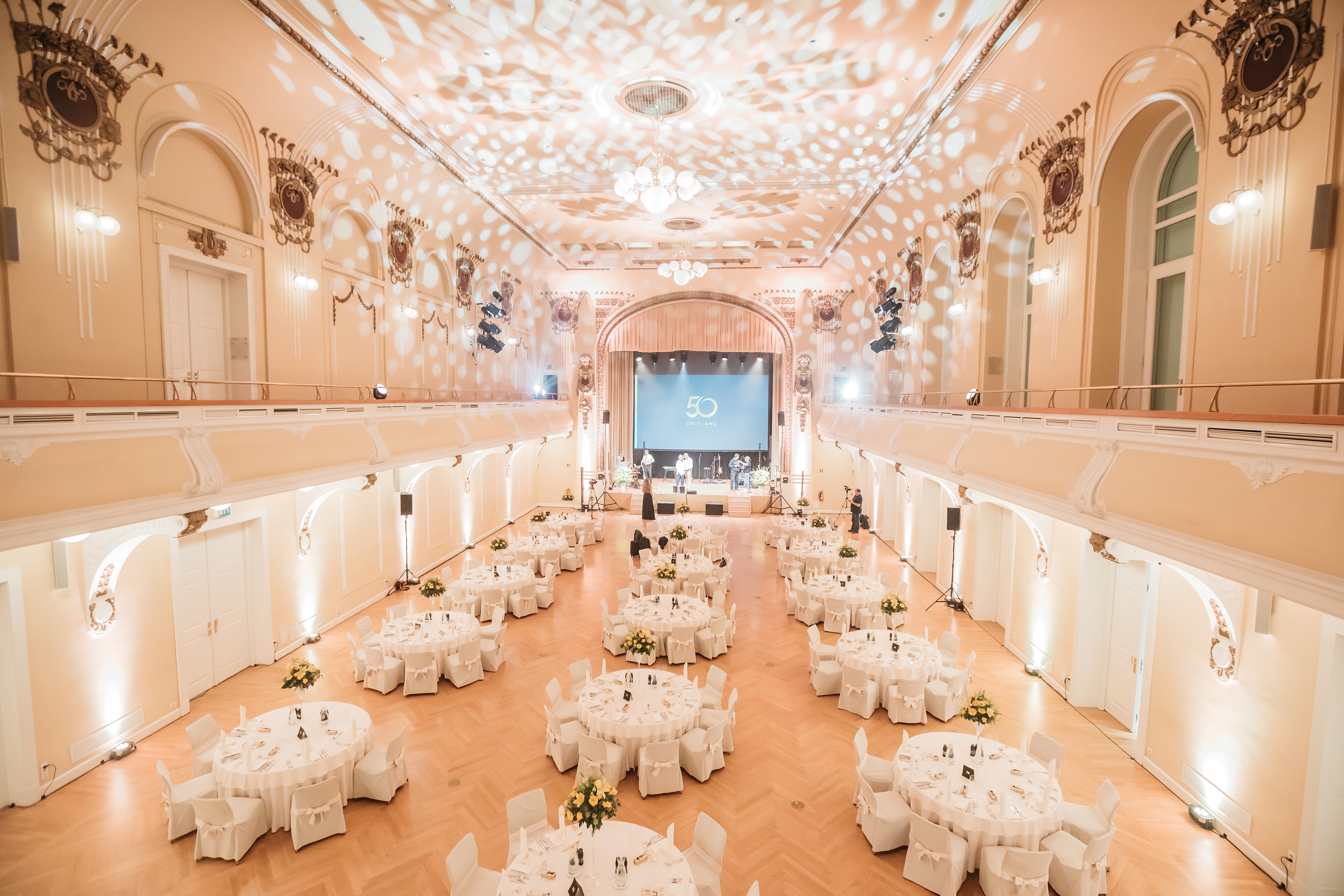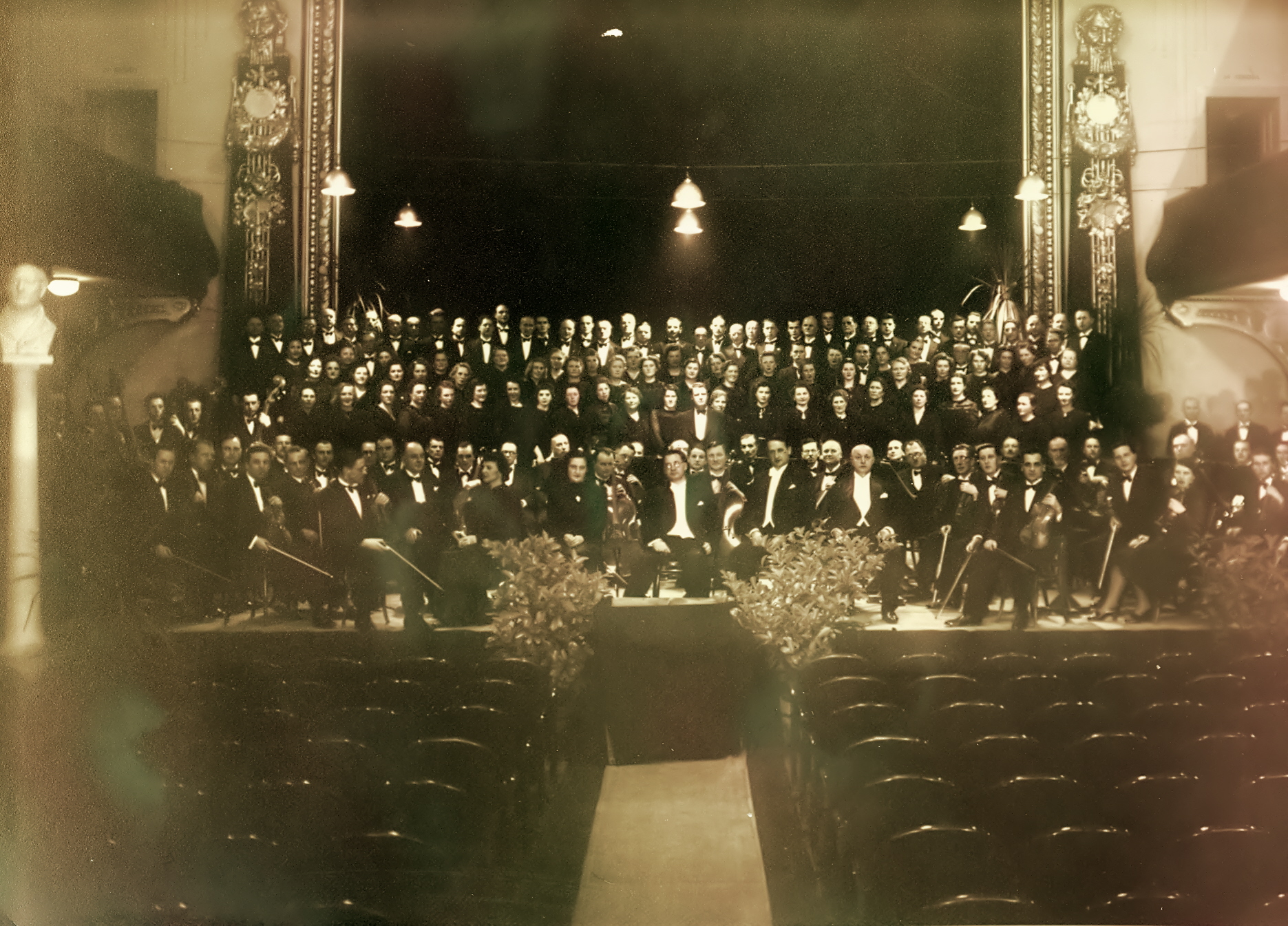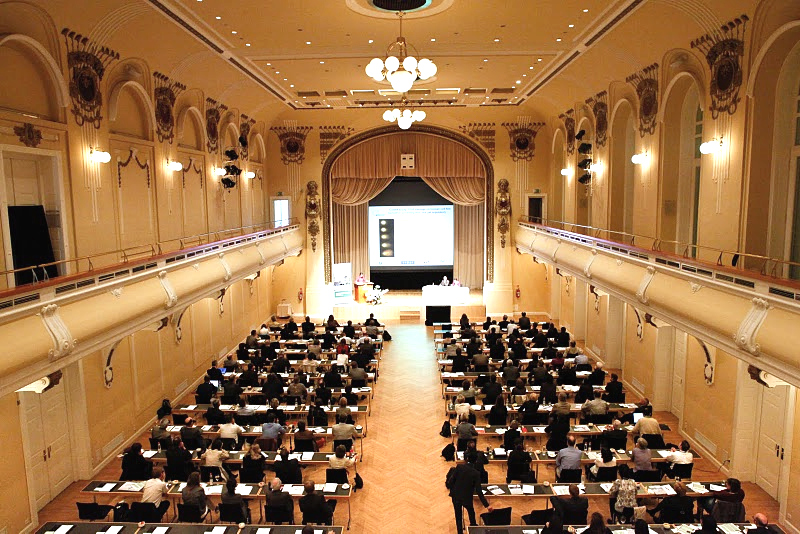The concert hall, opened in 1905 in a hotel whose modern architecture surpassed all others in the region – the present-day Grand Hotel Union –, became an important musical venue at the beginning of the 20th century. The Grand Hotel Union concert hall, today located in a cultural and congress centre that enjoys the status of a protected building, has played an important role in Slovenian music history.
The Union Hall provided the venue for the annual concerts of the Glasbena matica Music Society, which organised performances by various choirs, soloists and an orchestra (under the leadership of concertmaster Matej Hubad). Notable soloists included the illustrious operatic bass Julij Betetto, and baritone Ivan Levar who performed passages from Wagner’s Tannhäuser. In featuring works from by Emil Adamič, and compositions by Lajovic and Janko Ravnik, the Union Hall performances were instrumental in enhancing the quality of Slovenia’s concert repertoire, rendering it comparable to the standards of international music hubs of the time. A notable highlight among progressive works was the debut composition by Marij Kogoj, Trenotek (Moment), which was published in one of the final editions of the Novi akordi (New Chords) magazine.
Glasbena matica’s concert agency, Koncertna poslovalnica, organised symphony concerts in the Union Hall. Concerts by the Glasbena matica Orchestra Society presented in the Hall led to the idea of concerts for young audiences. A concert for secondary-school students in 1920 featured the Glasbena matica Orchestra under the baton of Karel Jeraj, with a programme of Tchaikovsky, Berlioz, Rimsky-Korsakov and Liszt and a premiere of Škerjanc’s Simfonični stavek v E-duru (Symphony Movement in E major).
The first symphony concert in liberated Slovenia, performed by the massed Radio Trieste Orchestra, took place in the Union Hall in May 1945 under the auspices of Glasbena matica’s concert agency. Later, in 1946 and 1947, the Hall hosted symphony concerts by the RTV Ljubljana Orchestra, accommodating the growing number of concerts not intended exclusively for radio broadcasts.
In 1941, the Hall witnessed a historic performance, a significant event in the history of both Slovenian choral music and the Slovenian nation. During the Italian occupation, in the packed auditorium of the Hall, the Academic Choir performed under its choirmaster France Marolt. Despite the ‘cultural silence’ boycott, the Choir held one last concert with a programme consisting solely of Slovenian compositions that appealed to people’s patriotic sentiments. The final song of the evening was Jenko’s Lipa zelenela je (The Greening Linden Tree), which prefigured the imminent resistance of the Slovenian nation. Needless to say, this musical act of rebellion did not go unnoticed by the Italian occupation authorities, and on the very next day a decree was passed by the high commissioner of Ljubljana Province immediately disbanding the Choir. A recording of the legendary concert, a sound inscription by Rudi Omota recorded on film tape with a microphone he had secretly planted on a chandelier above the stage, has particular documentary value. At this Union Hall concert, Jenko’s Lipa became a timeless expression of Slovenian patriotism.
Grand Hotel Union later became a venue for music and theatre performances in the Hotel’s coffee chop (Cafe Teater). Popular music events of this kind are still held in the Blue Salon and the Kavarna Union coffee shop.
Maia Juvanc
